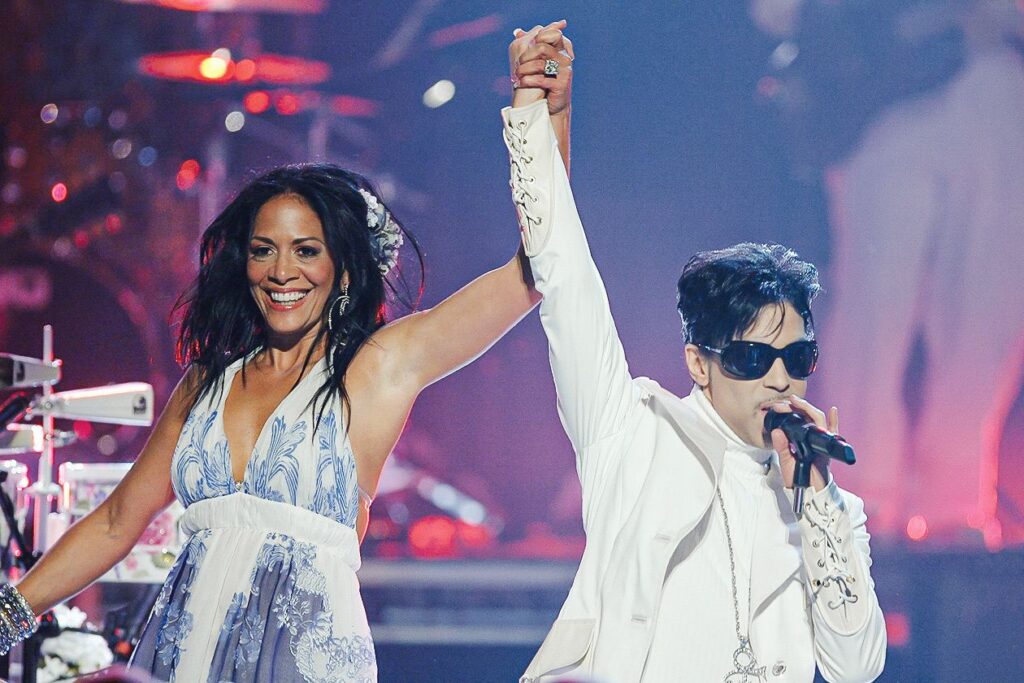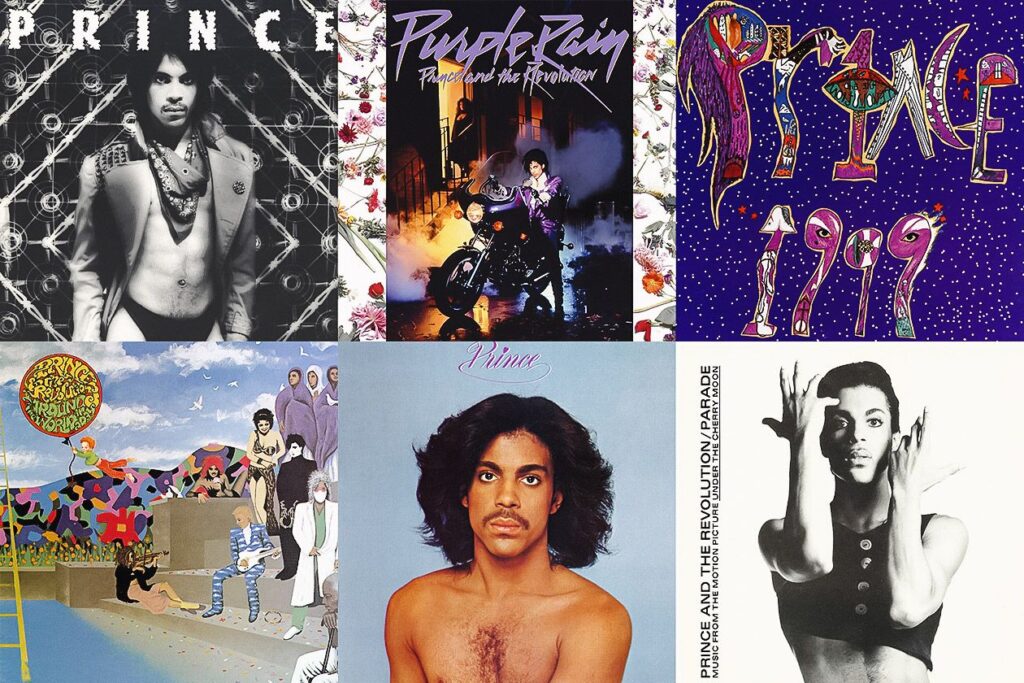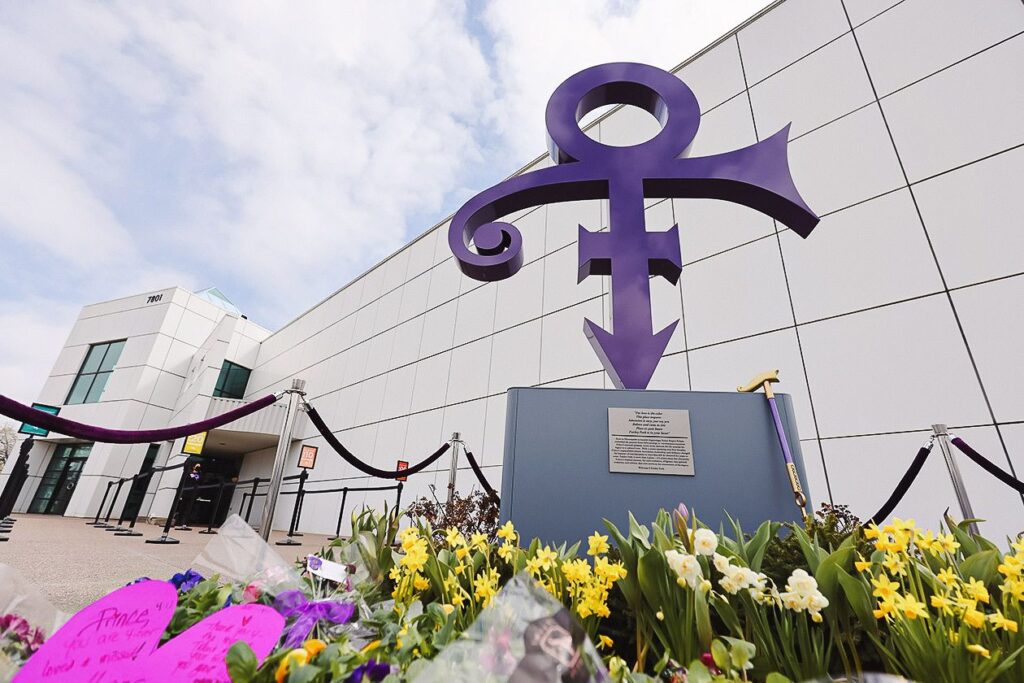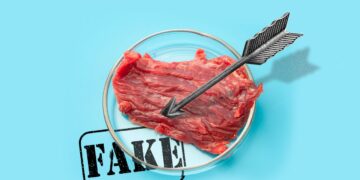[ad_1]
Prince was extra than simply an icon of music—composing, producing, and performing an infinite stream of songs and albums, revolutionizing live performance movies, laying waste to anybody who dared to jam earlier than him, and giving one of the memorable Tremendous Bowl halftime performances enjoying within the literal purple rain—he additionally persistently used his platform to push for change and advocate for others. And do you know, he adopted a meat-free eating regimen for many of his life?
Listed below are seven instances Prince spoke out and inspired kindness.
In his 57 years on Earth, Prince repeatedly used his voice to advertise kindness, advocate for himself and different artists, and arise for animal rights. The artist’s legacy lives on, though he handed away in April 2016. His presence continues to be felt within the music business, the place he fought tirelessly for artists’ rights and past.
If there’s a via line to the causes that Prince put his weight behind, it’s freedom. As he made clear in his 2004 induction speech on the Rock and Roll Corridor of Fame, freedom—creative and in any other case—was at all times on the forefront of his thoughts.
“Once I first began out within the music business, I used to be most involved with freedom,” he defined on the time. “Freedom to supply, freedom to play all of the devices on my information, freedom to say something I needed to.”
Prince: Musician and Activist
Prince by no means shied away from utilizing his voice to face up for himself or communicate out for others. From advocating for racial justice to standing up for animal rights, listed here are seven instances the Grammy- and Oscar-winning artist used his platform for good.

Prince Created Alternatives for Girls In Music
Prince labored with dozens of girls musicians all through his profession, and gave these artists great alternatives within the music business up till his demise.
A few of his most well-known protégés embody Wendy Melvoin and Lisa Coleman (Wendy & Lisa), who had been a part of his band The Revolution within the Nineteen Eighties and recorded “Purple Rain” with him, in addition to Sheila E., a legendary percussionist and vocalist who labored with Prince on and off for almost his total profession. As with a lot of his backing bands, his newest collective, 3RDEYEGIRL, was made up of exceptionally proficient girls musicians whose careers skyrocketed from the publicity.
Prince additionally wrote music for a lot of well-known feminine artists and teams, together with hit songs for The Bangles (“Manic Monday”), Madonna (“Love Tune”), Sinéad O’Connor (“Nothing Compares 2U”), and extra. In lots of situations, his affect helped launch their careers. In 1982, he fashioned his first lady group, Vainness 6, which featured singer (and his girlfriend on the time) Denise “Vainness” Matthews. He wrote the music for his or her sole, self-titled album, which was launched that 12 months. He additionally labored intently with Janelle Monae on her 2016 album, Soiled Pc.
After his demise, most of the girls artists Prince supported through the years shared stories of how his help—uncommon for an artist of his magnitude in all of music historical past—modified their careers and their lives.
Prince Advocated for Artists’ Rights
The music business isn’t essentially identified for being form and truthful to artists. That makes it all of the extra spectacular that Prince staunchly advocated for his personal rights in addition to the rights of different music creators who are sometimes stifled and managed by report labels keen to show a revenue.
In actual fact, Prince spent a lot of his profession preventing for management of his personal music and famously ditched his title in 1993 in an effort to enact report contract reform. He modified his title to an unpronounceable glyph within the hopes that his report contract would now not be enforceable if stopped going by his earlier moniker.
Whereas the title change didn’t work, it did assist kickstart a bigger dialogue about contract reform. As Prince explained to Ebony, artists ought to search to manage the distribution of their very own music. “The place we lastly get right into a place to run issues — all of us ought to assist,” he mentioned.
Prince additionally felt that artists, notably Black artists, ought to personal their masters, that are the official unique recordings of a track, sound, or efficiency. In line with these near him, he noticed this type of possession as a method to fight racism.
As soon as he left his report label, Prince turned the primary artist to promote albums on to the general public on the Web. He additionally based the NPG Music Membership in 2001 as a method to join straight along with his followers, and explored different distribution techniques as properly. Living proof: Followers who purchased tickets to his 2004 live performance tour got a replica of his new album, “Musicology.”
Previous to his demise, Prince joined Tidal—the music streaming service backed by Jay Z. As he told Rolling Stone in 2015, selecting Tidal over comparable platforms was a deliberate selection. “As soon as now we have our personal assets, we will present what we want for ourselves. Jay Z spent $100 million of his personal cash to construct his personal service,” he defined. “Now we have to indicate help for artists who’re attempting to personal issues for themselves.”
Right this moment, even after Prince’s passing, different artists and bands have used his techniques to struggle for his or her creative freedom and circumvent conventional distribution routes. Radiohead, 9 Inch Nails, and Probability the Rapper, to call just a few, have taken cues from the late musician by releasing albums on to their followers.

Pay Fairness Was a Private Trigger for Prince
Prince advocated for pay fairness years earlier than it was thought of the “woke” factor to do. He counted Madonna and Michael Jackson as his contemporaries, however needed to struggle for the compensation and recognition he noticed them (and others) receiving.
With that in thoughts, Prince signed a 1992 contract with Warner Bros. that not solely gave him more cash for his work, however a bit extra management as properly. The contract included six albums and allowed Prince to launch music extra according to his personal quick tempo—as much as one new album a 12 months. It additionally included a $10 million advance per album and a 25 p.c royalty price.
Moreover, the hefty contract remodeled Prince’s Paisley Park Information from an arrogance imprint right into a three way partnership with Warner Bros. When Prince’s workforce, unbeknownst to Warner Bros., shared a press launch that famous the deal’s estimated $100 million worth, it acquired the popularity Prince and people round him had hoped for: The lead of the Los Angeles Instances‘ story in regards to the settlement learn, “Eat your hearts out, Michael Jackson and Madonna.“
Prince Supported Black Lives Matter
Prince was an avid and fixed supporter of the Black Lives Matter motion because it gained traction in the previous couple of years of his life.
He confirmed his help for the social justice motion in a myriad of how, together with by writing tribute songs for capturing victims like Freddie Grey. Prince’s monitor “Baltimore,” which addressed Grey’s homicide, included the lyrics: “Does anyone hear us pray?/For Michael Brown or Freddie Grey/Peace is greater than the absence of battle.”
Prince additionally organized a 2015 “Rally 4 Peace” live performance in Grey’s honor in Baltimore and, in line with Rev. Al Sharpton, despatched cash to Trayvon Martin’s household in 2012 after the unarmed teen was shot and killed in Florida by a neighborhood watch volunteer.
In June 2020, Prince’s property shared a notice that was present in his private archives. In it, the singer known as for peace and understanding. “Nothing extra ugly in the entire vast world than INTOLERANCE (between) Black, white, crimson, yellow, boy or lady. INTOLERANCE.”
Prince additionally used his platform to advocate for Black Lives Matter even, and particularly when, the highlight ought to have been on himself. Living proof: When he presented the Grammy for Album of the 12 months in 2015, he used his time on the podium to share a vital message with the viewers. “Albums nonetheless matter,” he declared that evening. “Like books and Black lives, albums nonetheless matter. Tonight and at all times.”
And even earlier than the Black Lives Matter motion was formally established, Prince advocated for Black lives. He told The Related Press in 2004 that he had beforehand scolded music business bosses over, music, particularly rap and R&B, that promoted intercourse, medication, and violence. “What you gained’t present your children, don’t present ours,” he mentioned on the time.

Prince Caught to a Meat-Free Eating regimen
Although Prince didn’t usually discuss his eating regimine, he reportedly adhered to a vegetarian (and principally vegan) for a few years, and declared his Paisley Park Property in Minnesota a meat-free zone.
To eat a tomato after which replant it to your diet versus killing a cow or a pig to your meal is decreasing the quantity of struggling on this planet. In addition to, pigs are too cute to die.
Even after Prince’s demise, Paisley Park has stayed meat-free. In actual fact, all guests and employees should eschew meat, and ideally all animal merchandise, throughout their time on the property.
“Prince was outspoken about animal rights and diet and it was not unusual for these themes to indicate up in his music as properly,” Paisley Park tour operations supervisor Mitch Maguire told The Each day Meal in June 2018. “Out of respect for Prince and his private ethos, Paisley Park stays a vegetarian facility for each employees and friends alike.”
Prince Was an Animal Rights Champ
Whereas Prince was usually quiet about his activism, he was a robust supporter of animal rights. In 1998 he wrote a track for PETA known as “Animal Kingdom,” by which he argued that animals ought to by no means be used for meals.
The lyrics to the monitor embody: “No member of the animal kingdom ever did a factor to me / It’s why I don’t eat crimson meat or white fish / Don’t give me no blue cheese / We’re all members of the animal kingdom / Go away your brothers and sisters within the sea.”
Prince maintained the assumption that killing animals for meals is mistaken and pointless. “‘Thou shalt not kill’ means simply that! We don’t must kill issues to outlive,” he told Vegetarian Instances in 1997. “Compassion is an motion phrase with no boundaries. It’s by no means wasted. To eat a tomato after which replant it to your diet versus killing a cow or a pig to your meal is decreasing the quantity of struggling on this planet. In addition to, pigs are too cute to die.”
Prince later attended PETA’s 2005 gala, and was named the group’s “Sexiest Vegetarian Movie star” the next 12 months.
Prince Was a Devoted Philanthropist
Because of his extremely profitable profession, Prince was capable of help a number of causes that had been essential to him, together with clear power and training. In line with the late musician’s pal, Van Jones, Prince helped fund a company Jones based known as Inexperienced for All. The charity goals to convey unions and environmentalists collectively to push for anti-poverty measures and a clean-energy economic system, and has put in photo voltaic panels on the roofs of buildings in Oakland.
“There are individuals who have photo voltaic panels proper now on their homes in Oakland, California that don’t know Prince paid for them,” Jones told SFGate not lengthy after the singer’s demise.
Prince additionally helped launch one other group known as Sure We Code, which is a nonprofit that encourages and helps city youth embrace careers within the tech sector. The Minnesota native reportedly supported Sure We Code following the Trayvon Martin verdict.
And that’s not all. In 2011, after ending the New York exhibits on his “Welcome 2 America” tour, Prince gave $1 million to Harlem Kids’s Zone—a company that gives parenting workshops, a preschool program, and different assets to kids and households residing in Harlem in an effort to interrupt the cycle of intergenerational poverty. The singer additionally donated the customized gold-plated Fender Stratocaster guitar that he used throughout his New York exhibits to boost cash for the nonprofit.
Moreover, Prince reportedly donated $12,000 to an African American library in Louisville, Kentucky, in 2001. The beneficiant donation was stored non-public (at Prince’s request) and was solely revealed after he handed away.
[ad_2]
Source link








